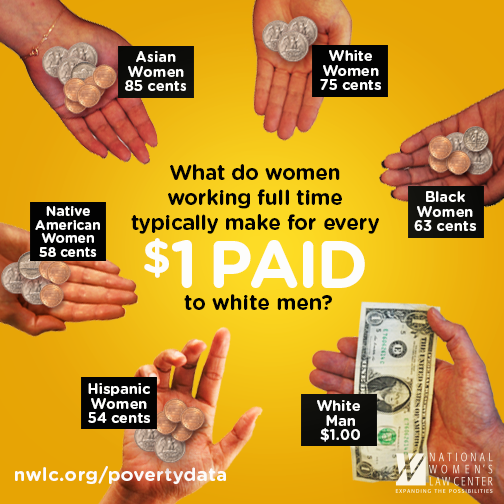Abortion rights, women of color, and LGBTQIA+ people are under attack. Pledge to join us in fighting for gender justice.
Wins for Women: States Working to Stop the Discounting of Moms


On May 30th, we recognized Mom’s Equal Pay Day—the day in the year to which mothers must work to make what fathers made in the year prior. Families depend on mothers’ wages more than ever, but moms, especially moms of color, are being shortchanged across the country by unfair pay, a lack of workplace pregnancy accommodations, and unaffordable and inaccessible child care—to name a few. Fortunately, in the month of May, states have been stepping up for moms.
South Carolina signs pregnancy accommodations bill into law
On May 10th, the South Carolina legislature passed a bill with strong bipartisan support providing pregnant workers who need them the right to reasonable workplace accommodations. And on May 17th, the Governor signed the bill into law! This new law will ensure that pregnant workers aren’t forced to choose between their job and a healthy pregnancy. With the addition of South Carolina, 23 states and the District of Columbia now have laws providing pregnant workers the right to workplace accommodations. The National Women’s Law Center was proud to work closely with advocates in South Carolina on this common sense, common ground legislation, and was thrilled to see the legislation garner strong bipartisan support.
Colorado makes significant improvements to their child care assistance programs
Colorado will be using a combination of their federal Child Care and Development Block Grant (CCDBG) increase (from the historic increase in CCDBG funding earlier this year) and state funds to make some significant positive changes to their child care assistance program. They will be increasing children and families’ continuity of care by implementing longer periods of care during temporary and non-temporary disruptions in eligible activities, maintaining subsidies when families move across county lines, and allowing families to stay on the program until 85% of the State Median Income (currently exit eligibility varies by county, but averages around 200% of the federal poverty limit). The legislature also increased access to high-quality care by raising the statewide floor eligibility from 165% of the federal poverty limit to 185% of the federal poverty limit, setting consistent eligibility statewide, and requiring counties to adopt the state-set tiered reimbursement provider rates. And more good news—Colorado still has a good portion of their new federal funds to make child care improvements during their next legislative session!
The Governor of Maryland will require the state to raise child care subsidy reimbursement rates
On May 8th, Governor Hogan signed into law landmark legislation requiring the State to raise child care subsidy reimbursement rates. These increases will help give parents access to quality care and establish a new “floor” so that rates never again fall so low. In terms of investment, breadth of benefit, and lasting impact, this is the most significant victory for early care and education in more than a decade.
Iowa legislature agrees to increase child care provider rates
On May 4th, the Iowa legislature agreed to increase the provider rates for infants and toddlers to the 75th percentile of 2014 market rate for providers who participate in the Quality Rating System. Quality set aside dollars will be used for this expansion. An additional $3 million was appropriated from the general fund to address low reimbursement rates for all providers at or below 2014 market rate 50 percentile. Providers will see incremental rate increases. The above rate increases take place in January, 2019.
The Governors of Vermont and Connecticut sign Equal Pay bills into law
On May 11, Vermont Governor Phil Scott and on May 22nd, Connecticut Governor Malloy signed equal pay bills into law making Vermont and Connecticut the fifth and sixth states to prohibit employers from using salary history in the hiring process. Women and people of color shouldn’t be forced to carry pay discrimination with them from job to job—bravo VT and CT for stopping this unfair practice.
Illinois Passes Equal Pay Bill
On May 29, the Illinois legislature passed an equal pay bill (HB 4163) that closes loopholes in Illinois’ current equal pay law, increases the relief available to victims of pay discrimination, and prohibits employers from using and seeking salary history from job applicants in the hiring process. The bill is now before Governor Rauner for his signature.





